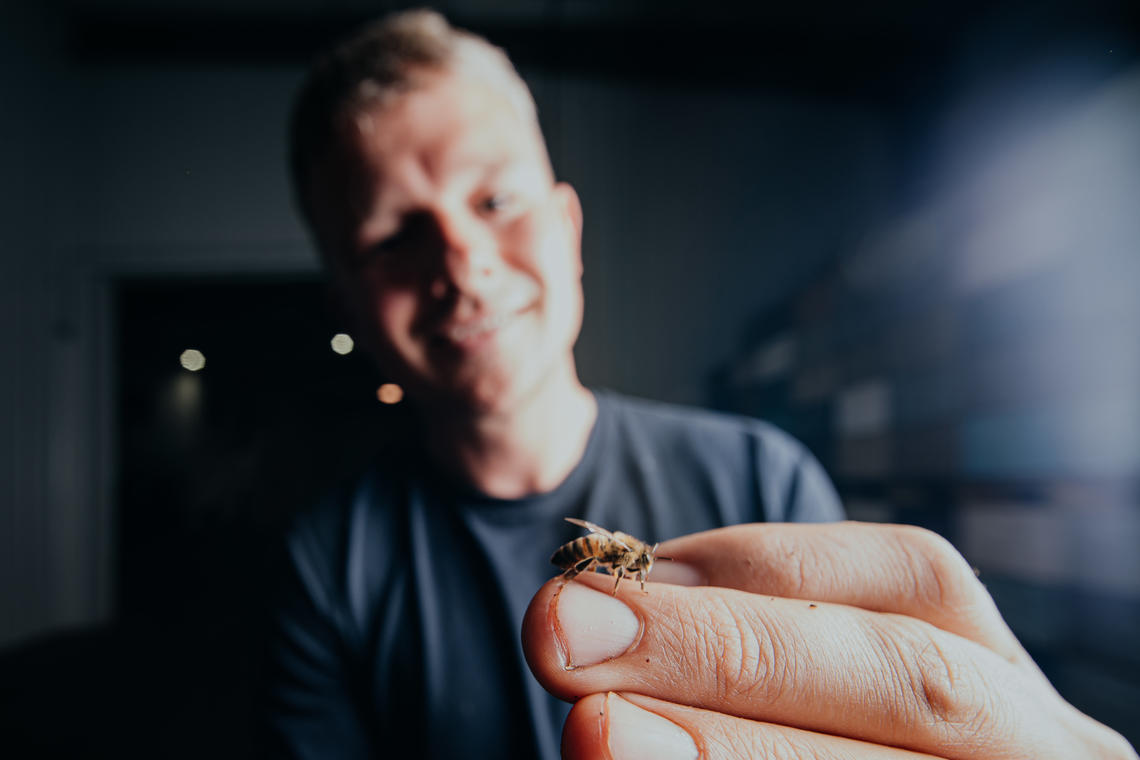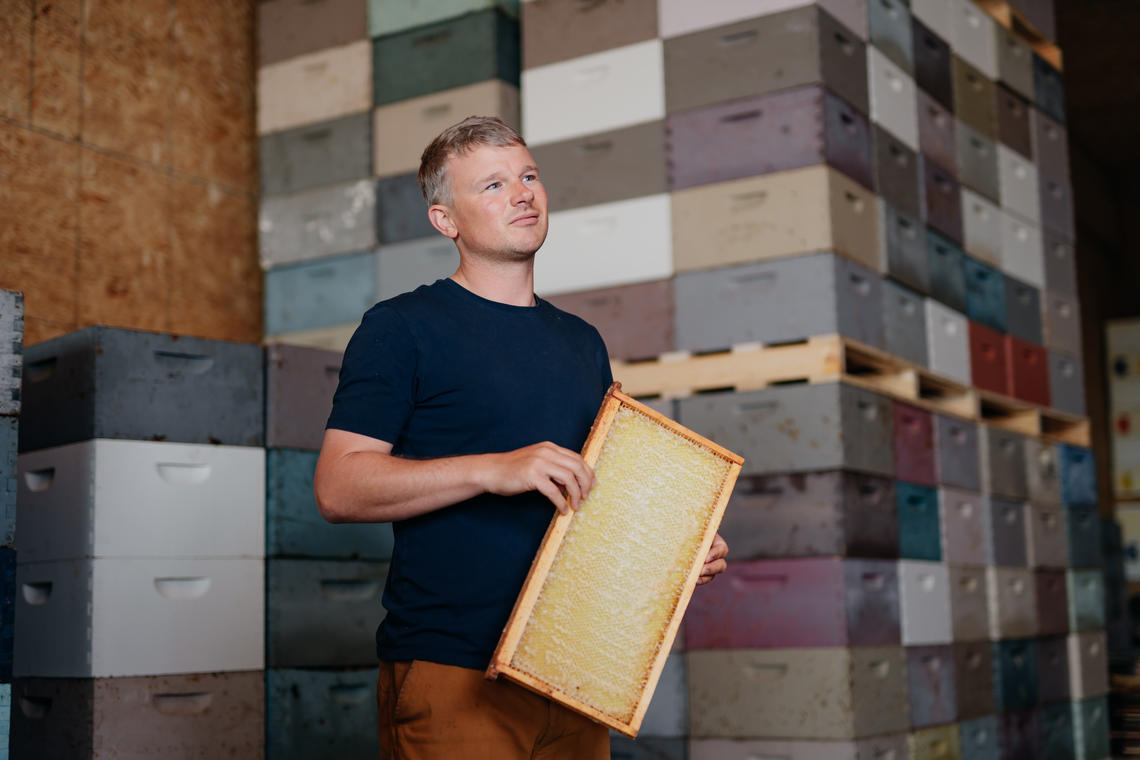Sept. 6, 2019
Haskayne alumnus returns for his executive MBA and puts lessons to work in growing agribusiness

Bees are big business. Canada is one of the fastest growing natural honey exporters. Haskayne alumnus and second-year executive MBA (EMBA) student Jon Zwiers, BComm’07, has been involved in this industry for many years, ever since he was two.
“We do view the bees as one of our partners,” says Zwiers. “We don’t wear gloves because usually when a bee stings it’s trying to tell you something. It certainly keeps you focused on the task and their well-being.”
Honey initially was a family sideline. Until about 2009, Honey Meadows Farm grew modestly, with about 1,000 hives to manage. Today, the family business has close to 10,000 hives and employs 14 people plus the family, and of course millions of worker bees. Each year, hundreds of tonnes of honey are harvested and sold wholesale to companies who package the sweet stuff for the end consumer.
- Photo above: Jon Zwiers, centre, takes care of the business's people management, while his brother Theo, left, ensures the mechanical operations are in order, and his father Hank oversees the enterprise. Photo by Kelly Hofer, Haskayne School of Business
An international perspective
After he received his undergraduate degree in 2007, Zwiers left home to put his international business education to work. He found a position in Montreal, working again in honey but this time as a trader. Here he tracked the movement of the commodity around the world, booking transactions anywhere from Argentina to Asia.
While in Montreal, Zwiers also worked with True Source Honey, a coalition of companies formed to help address honey that is imported against trade laws. The primary issue the group is combatting is the mislabeling of country of origin with many cases of honey originating in China but being shipped through other countries to avoid duties. The end goal is to ensure the honey that reaches the end consumer is safe and good quality. Zwiers’ own farm is CFIA certified and has been organic certified for the past three years.
Looking to grow
Zwiers returned to Calgary when the family acquired more land and really began to grow the operations. “My side is the people management,” says Zwiers, while his brother ensures the mechanical operations are in order and his father oversees the enterprise. In most small businesses, it is difficult to divest yourself from the day-to-day operations and invest in the strategic portion, but with his sister joining the family business, leaving her position in oil and gas, he has found more time to focus.

The Zwiers family business is poised to become one of the largest honey producers in Canada.
Kelly Hofer, Haskayne School of Business
“It is hard to let go when you have created something from scratch,” says Zwiers. He is looking forward to Business Technology and Entrepreneurship classes to help him to extend the business with a direct-to-consumer model in addition to their wholesale business.
Leadership lessons
Zwiers is the only beekeeper in his cohort in the EMBA program, but the leadership lessons have transferred across industries.
This past year, Zwiers oversaw a capital investment by upgrading the housing for their workers, beekeepers from Central America who come to Canada during their off-season. He received advice from his fellow students on how to deal with suppliers and how they address standby periods in their operations.
And what have the other students learned from the sole beekeeper in the program? “I think my optimism may have rubbed off on some of them,” says Zwiers, who like anyone in the agricultural business, knows sunny days sometimes just must be a frame of mind.

Jon Zwiers is applying his Haskayne education to challenges as the family business grows.
Kelly Hofer, Haskayne School of Business

